The Matrix opened in theaters 20 years ago, a fact that will leave many millennials feeling nostalgic and old. An unexpected box office hit and lauded by critics, the 1999 sci-fi action film fully established Keanu Reeves as a star and catapulted its writing and directing duo, The Wachowskis, from obscurity to Hollywood fame. It would go on to sweep all four technical Oscars (visual effects, film editing, sound, and sound editing) for that year and spawn two sequels that failed to match its praise among audiences. Nevertheless, the first movie’s stellar reputation has largely remained intact.
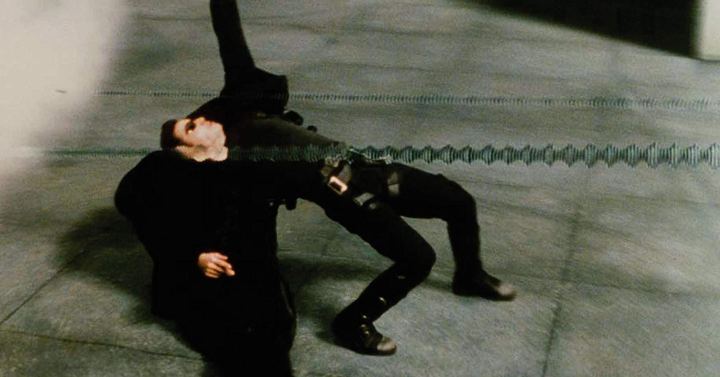
So what exactly makes The Matrix special? For starters, it had substance – a diverse blend of religious allegory and philosophical examination of existence, reality, fate, free will, artificial intelligence, and more. While none of these facets were particularly original, casting a pop culture spotlight onto the likes of Plato and Descartes was enough to elevate The Matrix substantially above the average blockbuster when it came to ideas. There was a compelling story of a hero’s journey, man vs. machine, a dystopian future, and rebellion all wrapped up in one mysterious yet accessible package. It featured a bevy of interesting characters, among them the everyman Neo, the mysterious Morpheus and Trinity, the wise Oracle, the sinister Agent Smith and his agent cohorts, and Cypher, Judas to Neo’s Jesus.
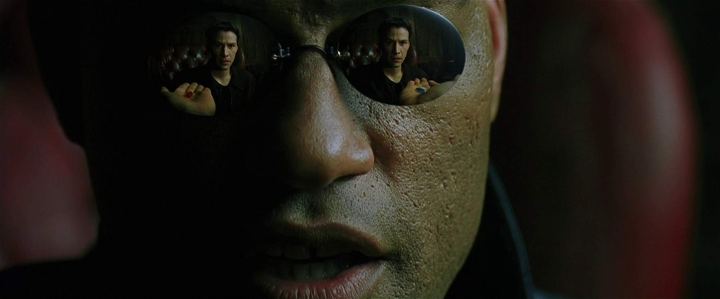
The Matrix was a timely film, coming out in a year marked by Y2K panic and doomsday predictions. It evoked longstanding fears of technology and, through its protagonist, feeling trapped in life as a meaningless cog in the machine. Its cultural footprint is alive and well in 2019. “Red pilled” has become a well known term referring to undergoing an intellectual, spiritual, or political awakening similar to what Neo and others experienced when they were unplugged. Machines fortunately haven’t subjugated humans yet, but they now decisively beat us in Go and poker, and are integrated in our lives more than ever. Automation is a hot topic in politics. And scientists still wonder if we’re living in a simulation.
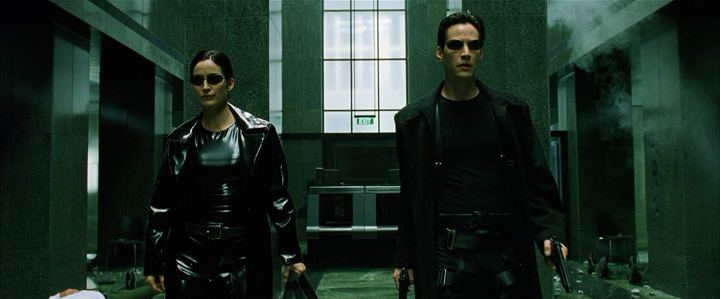
While a fair share of detractors considers The Matrix‘s intellectual merit to be overblown, the key to its success was that it could be widely appreciated solely on the level of pure spectacle. It had an undeniable impact on action filmmaking, popularizing wire-fu and bullet-time techniques that would be emulated and parodied for years to come. The Wachowskis’ love of anime and Hong Kong action cinema was put on full display through game-changing visual effects and top-notch martial arts choreography and gunplay. Don Davis’ brilliant score amplified every moment of suspense and intrigue. With its green-tinted, cyberpunk aesthetics and enduring visual motifs (trenchcoats, sunglasses, those flip phones whose bottoms snapped out upon answering a call), The Matrix achieved an eye-catching look throughout every frame. It was thought-provoking, but also simply great entertainment.
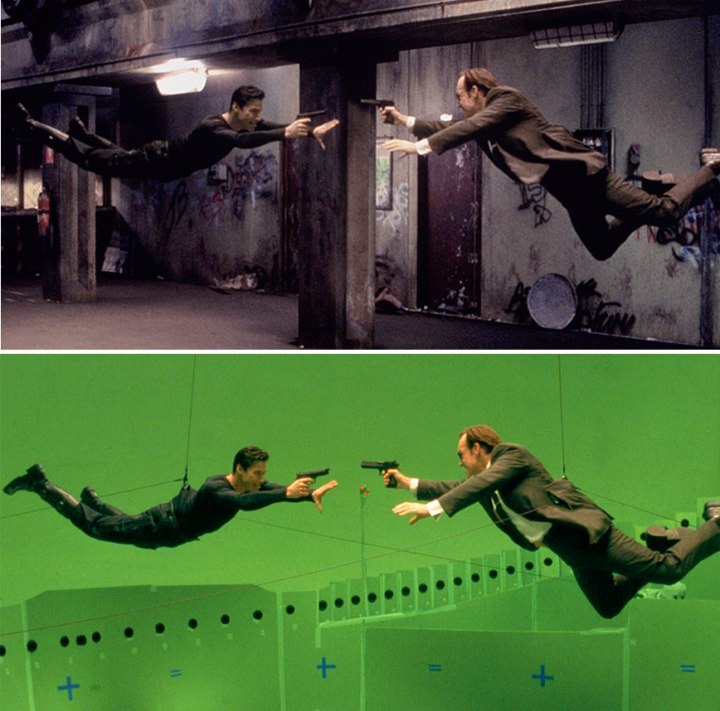
“Unfortunately, no one can be told what the Matrix is. You have to see it for yourself,” Morpheus tells Neo, in a line serving as a great commercial/trailer sound bite in addition to the startling truth he’s about to reveal. Bringing to mind the principle of “show, don’t tell,” the Wachowskis succeeded in distilling their themes into illustrative snippets (“There is no spoon”) and concepts (red pill or blue pill?).
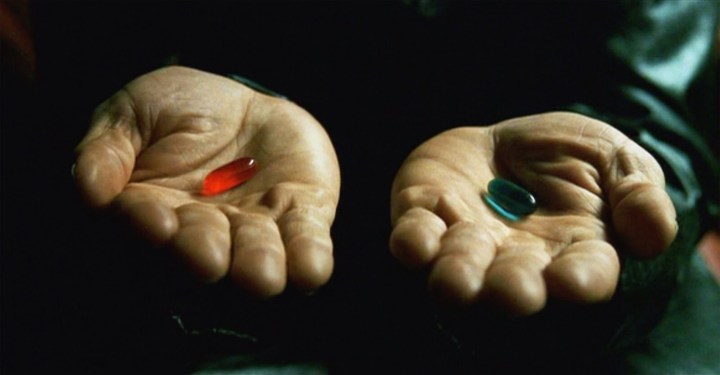
Their lean screenplay kept exposition to a minimum and garnered curiosity from the opening scene. Why is Trinity desperate to answer a ringing phone and where does she go after the agents drive a truck through the booth? Neo was the perfect audience surrogate, at one point wondering out loud the key question, “What is the Matrix?” and then having to grapple with being The One. “Jeeesus… what a mindjob,” Cypher reacts accordingly. “So you’re here to save the world. What do you say to something like that?”
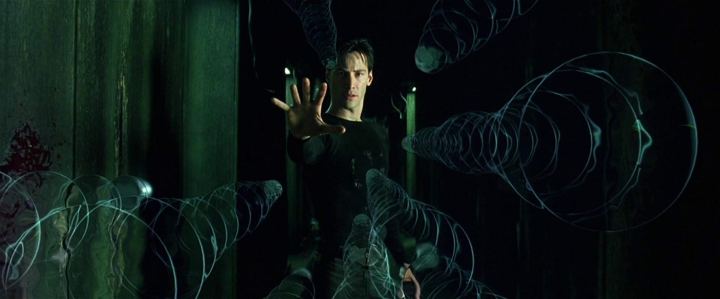
“Whoa,” indeed. The Matrix influenced the sci-fi and action genres and captured the 90s zeitgeist in a manner few other movies did; many viewers realized they’d seen something special by the time Rage Against the Machine’s “Wake Up” started playing during the credits. Four years later, The Matrix Reloaded and The Matrix Revolutions were unfortunately unable to duplicate this feat for the 2000s. However, they showed that the Wachowskis weren’t content to trot out lazy sequels. They were willing to take things in a considerably different and more philosophically dense direction, even if it didn’t turn out to be a better one overall. There are recent vague rumors of a new film that may be a prequel, sequel, or reboot, but whether the franchise continues down the rabbit hole or stays dormant, it won’t affect the original’s groundbreaking place in cinematic history.


